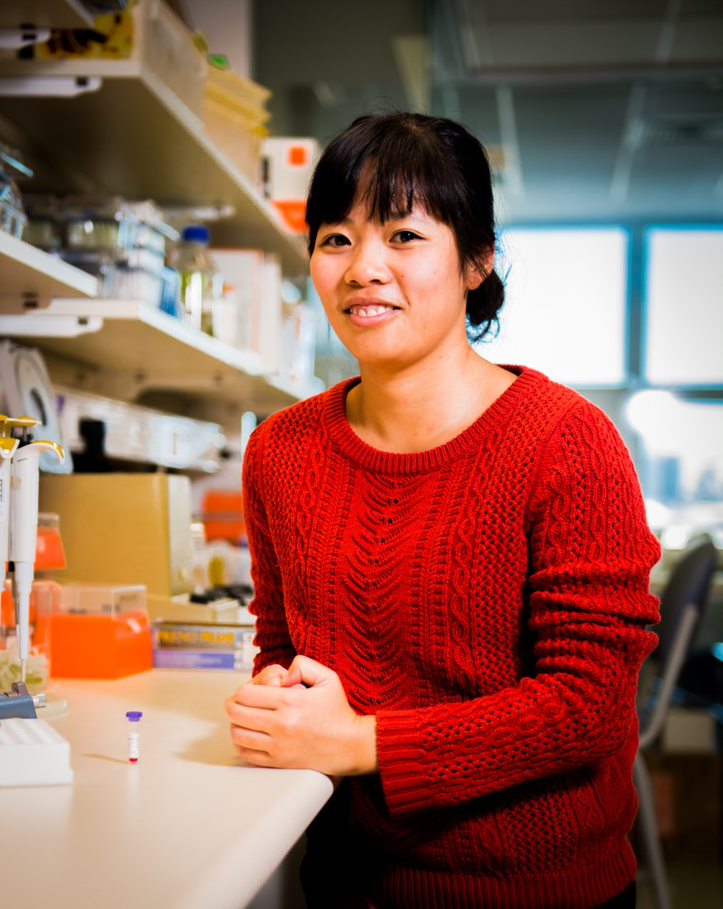Investigating factors that may cause genetic changes in leukaemia

Under the supervision of Dr Steven Lane and Professor Geoff Hill at the QIMR Berghofer Medical Research Institute, PhD student Therese Vu is investigating the role of a gene, DNMT3A, that may play a role in transforming a blood disorder into acute myeloid leukaemia (AML).
This gene produces an enzyme that regulates the function of various genes from within the cellular environment.
Mutations of DNMT3A exist in up to 20 per cent of AML cases, however it is unknown what role the enzyme plays in either the development or sustenance of the cancer.
A better understanding of the gene’s role in myeloproliferative neoplasms (MPN) and the genetic pathways that progress MPN into AML may lead to new ways to intervene early and prevent the development of AML in some patients.
“We don’t understand a lot about the function of DNMT3A in MPN, so I’m investigating its role in normal blood formation as well as how mutations in the gene may lead to disease,” said Therese.
“I’m also using laboratory models to see if we can accurately imitate the conditions seen in patients with blood disorders, and use these to test targeted treatments to try and restore normal gene expression and maybe sensitise malignant cells to chemotherapy.”
Last updated on September 28th, 2022
Developed by the Leukaemia Foundation in consultation with people living with a blood cancer, Leukaemia Foundation support staff, haematology nursing staff and/or Australian clinical haematologists. This content is provided for information purposes only and we urge you to always seek advice from a registered health care professional for diagnosis, treatment and answers to your medical questions, including the suitability of a particular therapy, service, product or treatment in your circumstances. The Leukaemia Foundation shall not bear any liability for any person relying on the materials contained on this website.